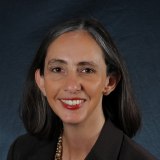 According to the National Academies Press "Facilitating Interdisciplinary research" 2005: "The mission of the professional societies is primarily educational and informational. Their influence flows from their continuing and highly visible functions: to publish professional journals, to develop professional excellence, to raise public awareness, and to make awards. Through their work, they help to define and set standards for their professional fields and to promote high standards of quality…."
According to the National Academies Press "Facilitating Interdisciplinary research" 2005: "The mission of the professional societies is primarily educational and informational. Their influence flows from their continuing and highly visible functions: to publish professional journals, to develop professional excellence, to raise public awareness, and to make awards. Through their work, they help to define and set standards for their professional fields and to promote high standards of quality…."
In a professional society as large as ASCO, the challenge of developing professional excellence while simultaneously meeting all of the varied goals of the society includes shaping the workforce so that we can be optimally efficient and productive.
The 2019 annual meeting is a yearly test of the vital signs of our profession. It is remarkable the pace of change that has hit the field of oncology, and the energy with which we approach these advances. As I reflect on the deliberate attention that ASCO has put into organizing the 2019 meeting, I am considering how we adapt to maintain this rapid evolution, particularly in maintaining a workforce that can keep up with and lead the ongoing rapid evolution of the cancer professions.
In my view, we have always been the adventurous doctors, the creative battalion leader who faces the onslaught of a battle with steel reserves, creating battle plans using whatever resources one has (natural or otherwise), and holding the full trust of their soldiers. Now with an armamentarium of treatments and an even greater cache of tools and knowledge with which we can advance cancer science, our charge requires that we adapt — because the battlefield just changes, the fighting never over. ASCO has embraced this concept in many dimensions, specifically in recognizing that our strength in the next era will come from developing practitioners and investigators with the power of knowledge, and the need to draw from a diverse body of individuals in order to achieve a far-reaching outcome.
Diversity
Perhaps the most important factor that differentiates ASCO from other professional organizations is the diversity of professional careers that are united under this umbrella. Making sure that the voices of surgical oncologists, radiation oncologists, pediatric oncologists, and the full spectrum of cancer-focused specialties and practitioners are heard — from the membership level to the highest levels of leadership — has been a visible strategy. This organization has a near infinite number of ways to blend the varied perspectives and voices of its membership. The recognition of this opportunity is a core strength, which I realized in hosting a session on navigating the job search for fellows. This session was populated by fellows seeking all manner of careers — and highly skewed toward female trainees. I also attended a women’s networking session on creating diversity and inclusion in the workplace. A particularly powerful message was shared by Dr. Karen Winkfield to seek out networks and advocate for a culture of inclusion. ASCO wants individuals to be successful. It wants to make complete use of its workforce. It wants to use all of the talent, diversity, and potential that its membership has to offer so that we are ready for the next battle, and to ultimately win the war.
Career Development
The ASCO meeting exemplifies the spirit of developing careers with a wide variety of mature programs to assist in career development. From the coordination of fellowship programs and programming focused on trainees, to the inclusion of up-and-coming members in the program and as session chairs, the annual meeting makes a strong effort in seeking to advance these individuals. In particular, developmental pipelines such as the Leadership Development Program and service recognition via FASCO and other awards extend the lens on career development to encompass the entire career. New programs, like the oncology division director meeting, for example, bring down silos, share best practices, and will allow us to advance faster, together. These efforts, along with the inclusion of program sessions such as “Establishing a mutually respectful environment in the workplace” and opportunities for less formal conversations in the early career and women’s networking lounges, make the meeting a palpable venue for nurturing a career.
The Resurgence of Science
Oncology has supported the inclusion of basic and translational scientists alongside clinical practitioners for generations. Reviewing the submissions for posters, presentations, and other products of the meeting, it is apparent that ASCO has embraced the concept of advancing mechanism-based science, including rigorous population science and public health, and robust methodologies in translational research. Investigators of all types, from lab-based scientists to clinical investigators and health service researchers, thrive in this environment. But that thriving doesn’t happen purely organically. It requires a supportive environment, with deliberate and concerted efforts to develop this generation of researchers. As I attended sessions in the early career lounge, witnessed the Conquer Cancer Foundation Awards, and participated in the first ever meeting of oncology division chiefs, it is clear that ASCO feels the burden of responsibility for enabling the changes that will take us into 2020 and beyond. Incentivizing robust investigation is hard, but the dividends of that investment will continue to pay out in years to come.
Dr. Rathmell is the director of the division of hematology and Oncology at Vanderbilt University Medical Center. She is the PI on T32 and K12 grants to support clinical investigator development and serves on several external advisory committees for Oncology training programs. She is currently the chair elect for the Nominating Committee for ASCO, serves as the chair of the Department of Defense Kidney Research Program, and is the current president of the American Society of Clinical Investigation. Industry relationships are reported and updated through the ASCO website. None are relevant to the content of this essay.
Illustration by Jennifer Bogartz






